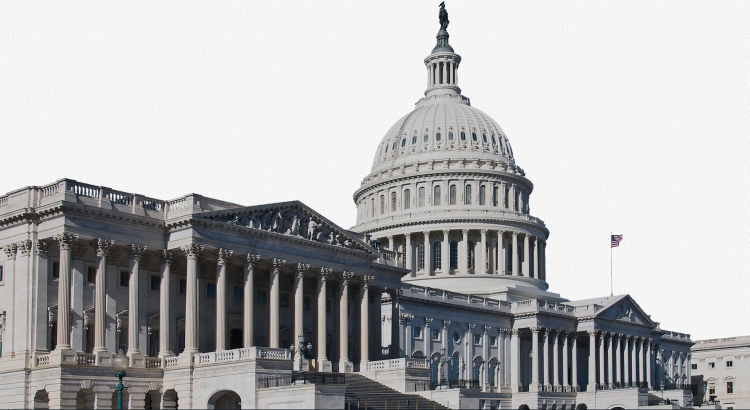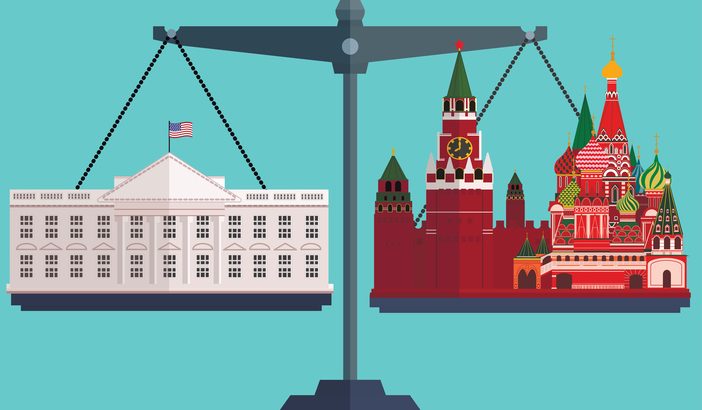It makes little sense to eliminate a program that has demonstrable benefits for the economy with fairly low cost to taxpayers, says economist Gale Boyd, who has studied energy efficiency in the industrial sector for over 25 years. “It seems short-sighted at best to eliminate a program like this,” he says. “If we’re interested in revitalizing the manufacturing sector, there may be lots of ways to do that, but having companies become more profitable by being more energy efficient, I think, is a smart strategy.”
Read More in ViceCategory: Politics-Public Policy

Trump’s SEC Pick, a Lawyer for Goldman, To Face Skepticism
Law professor James Cox, a close Securities and Exchange Commission-watcher, takes a somewhat positive view of President Trump’s selection of Jay Clayton to lead the SEC. “This may be a good time for that kind of person,” Cox says, suggesting that Clayton is likely to steer the SEC back to its more fundamental responsibilities instead of its more recent task of writing rules under the Dodd-Frank law.
Read More at ABC/The Associated Press

A Budget for the People?
“The core purpose of federal taxing and spending is to provide the American people with the government services and public goods they need, want, and deserve. The new administration’s budget, if we can even call it that, does nothing of the sort,” writes Mark Paul, an economist and postdoctoral associated at the Samuel DuBois Cook Center on Social Equity.
Read More on Medium
Trump’s War On Terror Similar To Obama’s
“President Donald Trump’s approach to combating terrorism looks a lot like President Barack Obama’s. It is heavy on the use of special operations raids and American airpower, but it relies primarily on indigenous forces to provide the bulk of the ground forces. To be sure, it is not a carbon copy. It is more open to risk,” writes political scientist Peter Feaver.
Read More in Foreign Policy
Gorsuch Hearings: Should Agencies – Or Courts – Decide the Law?
“Executive power issues are the most important that the (Supreme) Court will face in the next decade,” says law professor Ernest Young. “The executive must abide by statutory limits set by Congress, but if the executive gets to define those limits (and courts have to defer to its definitions) then those limits are a lot less meaningful.”
Read More in The Christian Science Monitor
Language and Cultural Studies Contribute to National Security — Really
“As the Trump administration promotes its recommendations for upgrading the U.S. military, it is essential that Congress and the executive branch not sacrifice other programs which contribute to our national security. For example, language and culture programs administered by the Department of Education, known as Title VI centers, are among the most important, cost-effective and vulnerable in the current political environment,” writes Patrick Duddy, a former ambassador to Venezuela now director of Duke University’s Center for Latin American and Caribbean Studies.

ISIS Is Winning The Cyber War; Here’s How To Stop It
“To defeat ISIS, we need an entirely new strategy, one that takes on ISIS where it is highly effective — in cyberspace. While ISIS continues to foment regional instability in the greater Middle East, its prowess online has made it a threat to Western nations as well. ISIS focuses significant resources on cyberspace, where it has a global presence, using sophisticated techniques to electronically communicate with its far-flung sympathizers, spread its propaganda and recruit operatives around the world,” writes historian Andrew Byers and a colleague.
Read More in The Hill

Is Judge Gorsuch An Originalist, Or A Living Constitutionalist?
“Why does any of this matter? Because if Judge Gorsuch is an originalist in the strict sense that Justice Scalia was not, then the implications for constitutional law going forward are quite significant. If, as seems more likely, Judge Gorsuch (like Justice Scalia) is instead more of a living constitutionalist than an originalist, then one is left to wonder why he publicly embraces the originalist label when he otherwise eschews labels,” writes law professor Neil Siegel.
Read More at American Constitution Society
‘Benghazi on Steroids’ Russia Investigation Needs Independent Commission
“The congressional hearings have only just begun, but I think it is time to predict one likely outcome: Sooner or later, Congress and the Trump administration will agree to some sort of blue-ribbon independent commission, patterned on the 9/11 Commission, to investigate the issue of Russian interference in the 2016 election,” writes political scientist Peter Feaver.
Read More at Foreign Policy
FBI Director Confirms Investigation Into Trump-Russia Ties
During a House Intelligence Committee hearing, FBI director James Comey confirmed the agency is investigating Russian interference in the 2016 presidential election, as well as possible coordination between Donald Trump’s campaign and Russian officials. Comey also acknowledged that he had “no information” that would support claims made by President Trump that he had been wiretapped by former president Barack Obama. Foreign policy expert Bruce Jentleson breaks down the hearing.
Listen on Wisconsin Public Radio

What Do Everyday Russians Think of Trump?
“The upshot is that Russians react to hacking claims as more of the same — as more insults, more demonizing. That’s because there are so many accusations. It’s really become impossible to sort out the kind of messiness so that one can be convincing, and the demonization, as they call it, just leaves them to reject wholesale any complaint the United States might have,” says Ellen Mickiewicz, professor emeritus of public policy. “Do they think there’s hacking? They think there’s no privacy, period.”
Read More in Vox
Was The Trans-Pacific Partnership Bad For The U.S.?
“President Trump’s knee-jerk nativism has blocked progress due to fear of change. Nations that turn inward and reject trade harm themselves and the world,” writes economics professor Edward Tower. “On the other hand, globalization since World War II shows that nations that open markets and embrace agreements such as the TPP strengthen their economies and spread wealth and liberty to more people around the world.”
Read More on Wallet Hub

